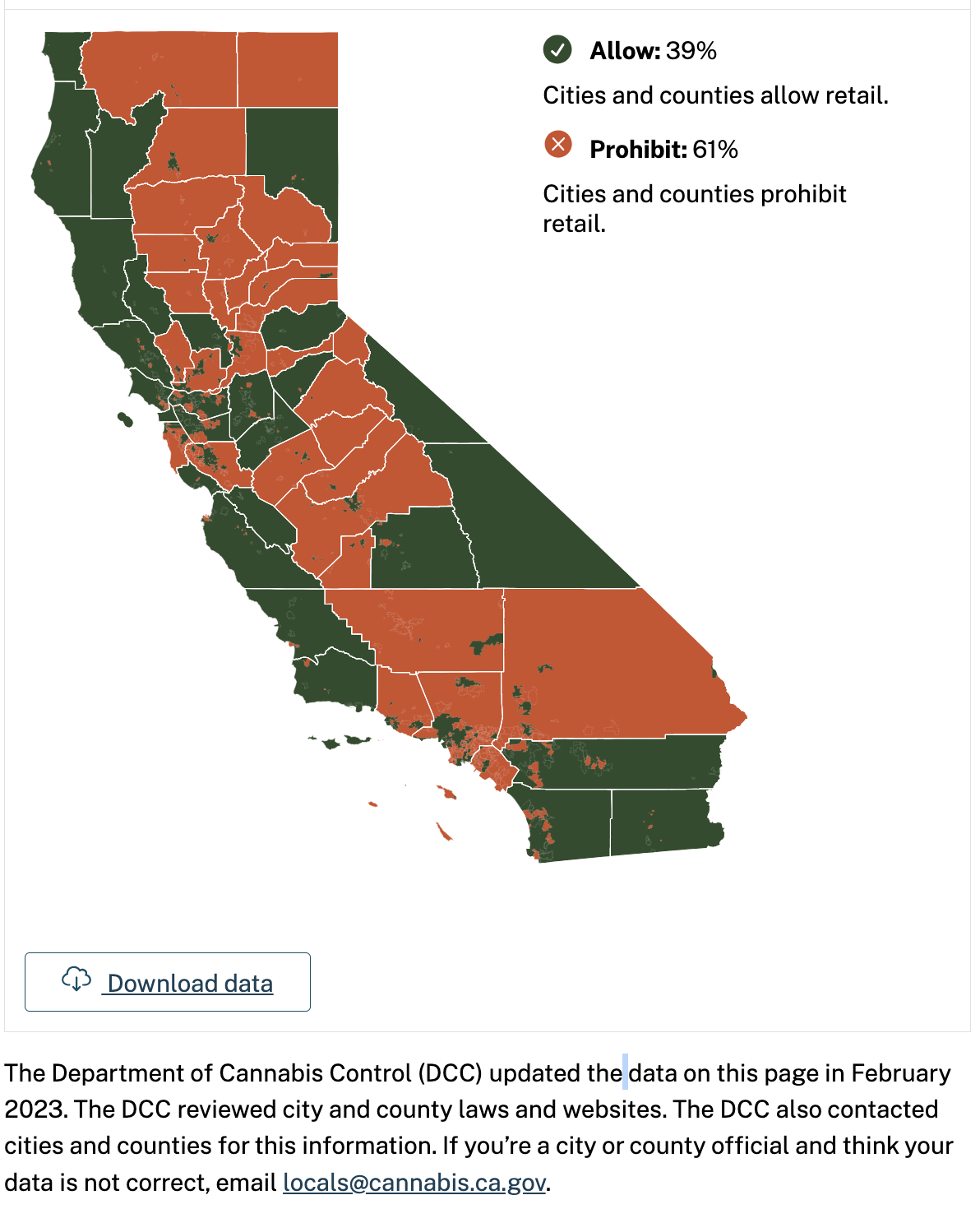California led the entire United States with the passage of Proposition 215 in 1996, igniting the modern medicinal cannabis legalization movement, and yet, over 25 years later, and after 37 other states have legalized medicinal cannabis, only 39% of California cities and counties allow any cannabis retailers to operate within their borders, meaning that many medicinal patients either have to travel outside their city or county to obtain cannabis legally or else acquire it from unlicensed operators. In California in 2023, nearly seven years after passage of Prop 64, medicinal patients are feeling left behind, and although the Medicinal Cannabis Patients’ Right of Access Act will, as of January 1, 2024, make it unlawful for any California city or county to prohibit medicinal delivery-only cannabis retailers, so far, over half-way through 2023 and nearly a year after Governor Newsom signed SB 1186, we have not seen the vast majority of non-compliant local jurisdictions rush to amend their ordinances. The City of Beverly Hills and the City of Visalia have at least discussed the issue, but many local jurisdictions, by not even addressing the impending law change, are unnecessarily exposing their governments to the risk of lawsuits by patients, caregivers, medicinal cannabis businesses and even the California Attorney General under Business & Professions Code 26323, lawsuits that tie up our state court system, the third branch of government, to do the work that local governments should do themselves as the first branch of government ahead of the January 1, 2024 deadline described in the Medicinal Cannabis Patients’ Right of Access Act. Earlier this year, the Department of Cannabis Control (DCC) announced a grant program designed to increase access to licensed retail facilities statewide, and as of June 20, 2023 the DCC has awarded $4 million in grants to 18 local jurisdictions to help them license cannabis retailers, but hundreds of California local jurisdictions with retail bans will not receive these grants or statewide attention, and these jurisdictions still have not updated their ordinances, despite the diminishing resource of time. Nearly a year after Governor Newsom signed this law to help fulfill the promise of Prop 215, the time for denial, disbelief, and delay has passed, and it is now time for each and every one of California’s 482 cities and 58 counties to stand up and stand behind their medicinal cannabis patient residents and bring their local ordinances into compliance with the Medicinal Cannabis Patients’ Right of Access Act, before requiring us all to pay to fund the California judicial system to drive the same outcome.






